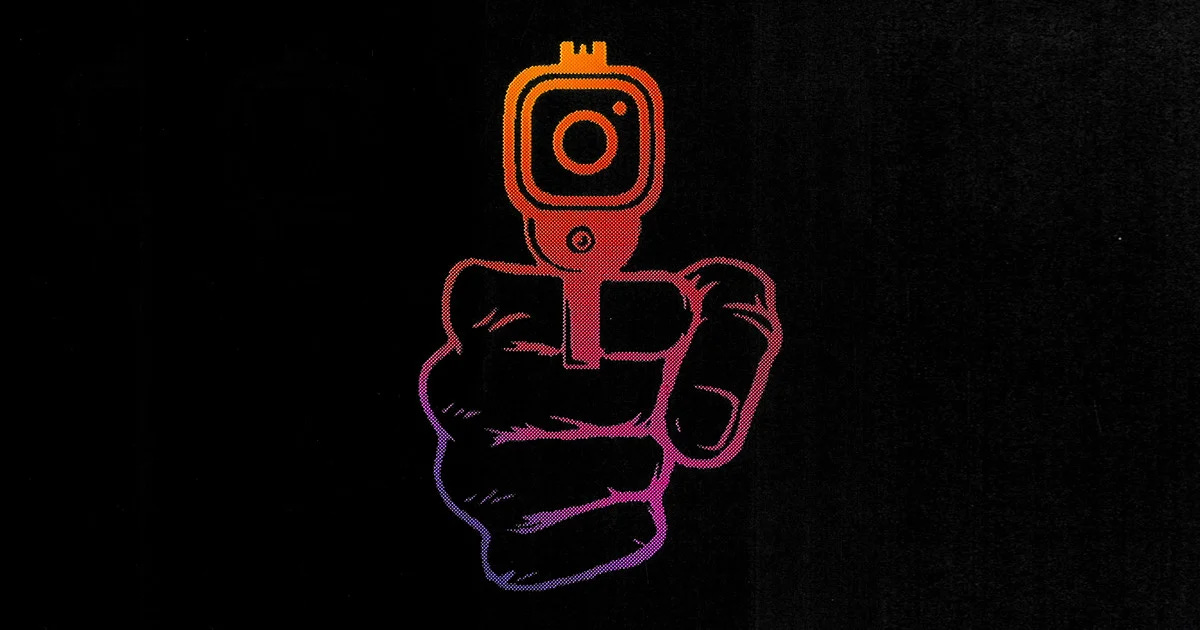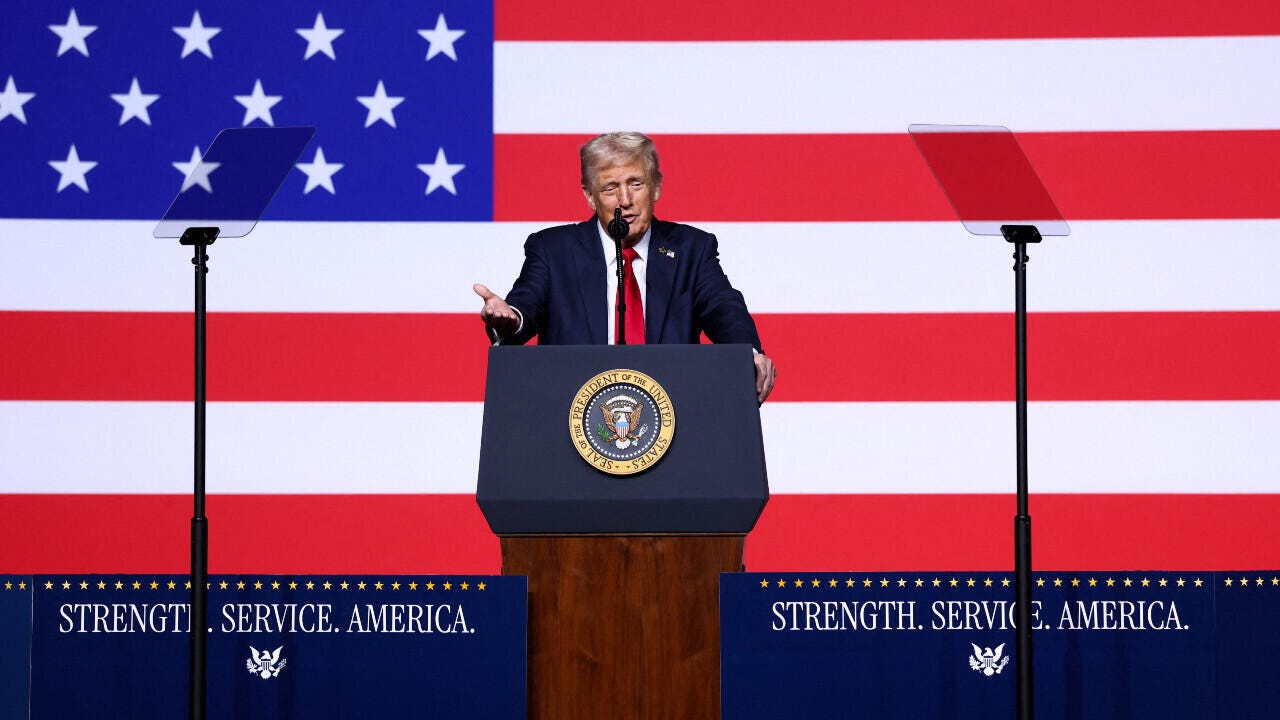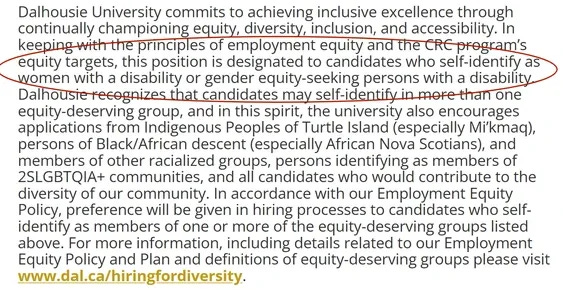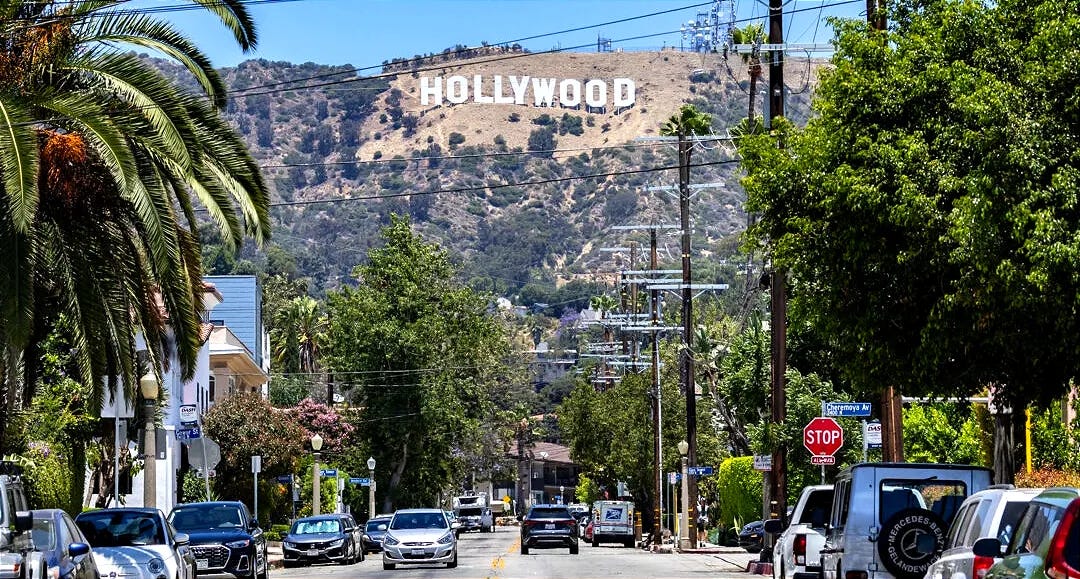Good morning, it’s Wednesday, October 1st. In today’s news, the Parliamentary Budget Officer warns that Canada’s Economy is on the edge of a cliff, social media is warping the world’s relationship with violence, Trump reignites his rhetoric about Canada as the “51st State,” a majority of Canadians oppose new immigration, and much more.
First time reading the daily blend? Sign up here.
Canada’s Economy Is on the Edge of a Cliff, Warns PBO
When Canada’s interim Parliamentary Budget Officer (PBO) uses words like “precipice” and “cliff,” it should make every Canadian sit up and pay attention. In plain language, our country’s finances are on a path that simply cannot continue.
In an interview this week, the PBO warned that the federal government’s current spending trajectory raises “significant concerns with respect to the sustainability of federal finances.” Translated: Ottawa is spending beyond its means, running up deficits that will soon become impossible to manage. For years, politicians have dismissed such warnings as abstract economic chatter. But this isn’t just theory anymore. The PBO made clear that Canada is standing at the edge — and if nothing changes, we’re about to fall.
The problem is twofold. First, Ottawa has very little fiscal room left. After years of piling on deficits, there is virtually no space to respond to future economic shocks or emergencies. That means the next recession, “pandemic,” or global crisis will leave us dangerously exposed. Second, the global environment itself is shifting. The PBO noted that the world order of the past 75 years is over. With new geopolitical threats, pressure to increase defence spending, and fraying ties with the U.S., Canada faces costly adjustments just as our ability to pay for them evaporates.
In other words, we’re in a bind: mounting obligations with shrinking resources. And the warning signs are already visible to ordinary Canadians. While politicians boast of “positive economic growth,” people feel the opposite — stagnant wages, higher taxes, soaring housing costs, and a sense that the future is tightening rather than expanding. The PBO’s comments simply give voice to the anxiety most Canadians already feel.
This isn’t a problem that can be solved with tinkering. Balanced budgets and fiscal prudence have been treated as relics of the past, but the laws of arithmetic haven’t changed. If spending continues unchecked, the cost of servicing our debt will eat into everything else — health care, education, infrastructure, and the social programs Canadians rely on. The cliff isn’t theoretical; it’s the hard stop where interest payments crowd out public services and growth collapses.
Parliamentarians will soon be asked to debate Budget 2025. They would be wise to take the PBO’s warning seriously. Because once you’ve gone over the cliff, there’s no climbing back up. Source.
Social Media is Warping the World’s Relationship With Violence
Social media has turned violence into endless entertainment, warping how people view it and fueling real-world conflict. Unlike movies or video games, online platforms now deliver unfiltered, real violence to users of all ages—often packaged with memes, jokes, and “brain rot” content that strips away its gravity. The consequence is a cultural shift where brutality becomes casual background noise, making society less sensitive to suffering and more accepting of cruelty as normal.
Algorithms then keep feeding users more of the same, not out of moral judgment but because outrage and shock keep people scrolling—and keep ad revenue flowing. This creates a vicious cycle: the most inflammatory and grotesque content spreads fastest, ensuring that violence not only persists online but is actively rewarded, shaping public discourse around extremism rather than empathy.
Experts warn this constant exposure desensitizes people and even normalizes violence, especially when political rhetoric dehumanizes opponents. Studies show teens are bombarded with violent content—44% of TikTok users and 43% of X users reported seeing it in the past year. The assassination of Charlie Kirk highlighted just how easily even the most graphic footage spreads online. The danger is generational: young people raised on a steady diet of gore and dehumanization may enter adulthood more cynical, more polarized, and more willing to excuse violence against those with whom they disagree.
What’s worse, arguments online spill into real-world fights, while ideological echo chambers make violence seem justified or even necessary. With youth immersed for hours each day, many are growing up seeing violence not as tragedy, but as content. That erodes the very social fabric, weakening the shared moral baseline that keeps disagreements from becoming blood feuds. When violence is normalized, politics and culture both drift toward hostility instead of cooperation.
Public sentiment is shifting: nearly half of US teens admit they spend too much time on social media, and support is growing for banning cell phones in schools. But as long as algorithms prioritize profit over ethics, violence will remain a feature—not a glitch—of the digital age. Unless platforms are forced to fundamentally realign their incentives, society risks raising a generation both addicted to and indifferent toward violence—one that views conflict not as something to resolve, but as content to consume.
Trump Revives “51st State” Talk Amid Growing Canada-U.S. Trade Strain
U.S. President Donald Trump returned to one of his most provocative lines this week, once again floating the idea of Canada becoming America’s “51st state.” The remarks came during a speech to top U.S. military officials at the Marine Corps Base in Quantico, where Trump laid out his ambitious “Golden Dome” missile defence initiative.
Trump said Canadian officials had approached him about joining the program, which he has pitched as the most advanced missile shield in the world. His reply was pointed: “Canada called me a couple of weeks ago, they want to be part of it, to which I said, ‘Well, why don’t you just join our country. You become the 51st state, and you get it for free.’”
The president framed it as a deal, not a threat. Canada, he said, is struggling under the weight of tariffs and losing investment to the United States. He boasted that new auto plants and capital were flowing southward while Ottawa scrambled to manage the fallout.
This was not the first time Trump has invoked annexation. He spent much of the past year repeatedly making statements about using economic leverage to pressure Canada, though that rhetoric appeared to quiet as Prime Minister Mark Carney sought to stabilize the relationship. Carney paused Canada’s digital services tax after Trump threatened trade talks, dropped retaliatory tariffs, and engaged in multiple phone conversations with the president. But the concessions have done little to stem the tide.
In August, Trump imposed 35 per cent tariffs on non-compliant CUSMA goods. Canadian industries are also reeling from new tariffs on steel, aluminum, automobiles, and copper. Most recently, the White House announced duties on softwood lumber, kitchen cabinets, and upholstered furniture. These measures have compounded an already heavy burden on Canadian manufacturers and exporters.
The price tag for Canada to join Trump’s Golden Dome project has also been shifting. Initially set at US$61 billion, it later rose to US$71 billion. Discussions between Ottawa and Washington are ongoing, but no agreement has been reached.
What stands out is the contrast in faming. Canadian media and political elites tend to treat Trump’s “51st state” line as a grave threat to sovereignty, raising alarms over annexation and national independence. Trump, on the other hand, continues to present it as a kind of invitation — a blunt, transactional offer consistent with his approach to trade and defence.
For Canada, the challenge is that the joke contains a real edge: economic leverage is already being applied, and the costs are mounting. Source.
Open Discrimination? Men and Able-Bodied Barred from Dalhousie AI Research Position
Dalhousie University is creating a new federally funded Canada Research Chair in artificial intelligence, but the position explicitly bars applications from men and able-bodied individuals. Instead, it is reserved for women with disabilities or “gender equity-seeking persons” with disabilities, part of the Carney government’s broader $310 million-per-year equity quota program tied to federal research funding.
Dalhousie is among Canada’s heaviest users of identity-based hiring restrictions, with multiple positions in the past year excluding candidates based on race, gender, or Indigenous status. The quotas are legally protected under Canada’s Charter, unlike in the US, where similar practices face civil rights challenges. By 2029, federal rules require Canada Research Chairs to be at least 50.9% women and gender minorities, 22% visible minorities, 7.5% people with disabilities, and 4.9% Indigenous.
Critics, including Concordia’s Gad Saad, warn that these policies amount to open discrimination, with academic qualifications taking a backseat to identity politics. But universities risk losing federal funding if they don’t comply, cementing quotas as a core condition of Canada’s research system. More
Leger Poll: 60 Percent of Canadians Oppose New Immigration
A new Leger poll finds that 60% of Canadians reject the idea that Canada “needs new immigrants,” underscoring growing unease over Ottawa’s record-high immigration targets. Opposition is strongest in Alberta (65%), Ontario (63%), and Quebec (61%), while support is lowest in B.C. at just 48%. By contrast, only 40% of Canadians believe more newcomers are needed—and that figure rises mainly among immigrants themselves, with 52% in favour compared to just 37% of non-immigrants.
Generational divides are also stark: support for immigration sits at just 35–39% among working-age Canadians (25–64), compared to 46% among younger adults (18–24) and seniors (65+). The survey also found Canadians evenly split on assimilation, with 51% saying immigrants should adopt Canadian customs and traditions, while 49% disagreed.
Canadians are being crushed by housing shortages, soaring living costs, and overstretched public services, and their patience with mass immigration is collapsing. With 71% in a separate Nanos poll now favouring cuts to immigration levels, public opinion has shifted—Canadians increasingly believe the country is at a breaking point. More
Egypt, Pakistan and Other Muslim States Join Canada and the EU in Backing Trump’s Gaza Plan - More
Police Seize More Than $50,000 Worth of Candy Moulded Fentanyl in Winnipeg - More
Madagascar’s Rajoelina Dissolves Government After Deadly Gen Z Protests - Youth-led protests over water and electricity cuts in Madagascar led to 22 deaths. More
More Than $33 Million in Social Security Benefits Were Paid to Deceased People in New York State - More
Nearly 100 Children Hurt, Several Feared Dead and Dozens Trapped After Indonesian School Collapses - More
US Government Unveils Deal With Pfizer to Cut Drug Costs—Pfizer is the First Manufacturer to Reach an Agreement - “This will save American taxpayers and consumers hundreds of millions of dollars a year,” Trump said. More
OpenAI to Launch TikTok-Like Social App for AI Video
OpenAI is preparing to release a TikTok-style social app powered by its upcoming Sora 2 video model. Unlike traditional social platforms, the app will only feature AI-generated content, with no option for users to upload their own videos or photos. Inside the app, clips will be limited to 10 seconds, though it’s unclear what restrictions Sora 2 will have outside the app.
The app will include an identity verification feature: users who opt in can have their likeness incorporated into AI-generated videos. Others can tag and remix these likenesses, and the system will notify users whenever their likeness is used, even if the resulting video is never posted publicly. On copyright, OpenAI plans to restrict the generation of some content, but protections may be limited. Rights holders must actively opt out if they don’t want Sora 2 to use their material, raising concerns about potential overuse of copyrighted works.
The app seems designed to blend short-form social media engagement with AI-generated creativity, potentially creating a platform where all content is synthetic but highly personalized and remixable. More
Experts Say the Canada Post Strike Could Be a Long One - According to sources, neither Ottawa nor the Crown corporation appears to be in any hurry to end the walkout. More
Video Game Maker Electronic Arts to Be Bought in Largest-Ever Private Equity Buyout Valued at US$55 Billion - More
Earth Was Dry and Lifeless Until a Planetary Collision Brought Water
A study from the University of Bern reveals that the proto-Earth’s chemical composition was set within just three million years of the Solar System’s birth, making it a dry, lifeless world lacking water and other essential elements. Using isotope analysis of meteorites and terrestrial rocks, researchers confirmed that volatile substances couldn’t survive in the hot inner Solar System where Earth formed. Instead, life’s key ingredients arrived later through a massive collision with a water-rich body, most likely the planet Theia, which also helped form the Moon. The findings highlight that Earth’s ability to sustain life was not a gradual inevitability, but rather the result of a rare cosmic accident. More
Scientists Create Bone-02, a Bone “Super Glue” That Can Fix Fractures in a Matter of Minutes - More
Researchers Found a Major Problem With Vitamin B12 Guidelines - “Normal” levels of vitamin B12 are not enough to protect the aging brain. More
Make it in America: What Does Trump’s Movie Tariff Mean?
President Trump announced plans to impose 100 percent tariffs on movies made outside the US, claiming Hollywood has been “stolen” by other countries. While the United States still leads global film production—with $14.44 billion spent in 2024—studios are increasingly filming overseas in countries like Canada, the UK, Australia, and New Zealand to take advantage of tax incentives and co-production deals.
Trump’s move could significantly disrupt Hollywood’s international shoots, potentially raising costs, complicating financing, and limiting creative options for globe-spanning blockbusters. The announcement also raises complex questions about what constitutes an “American” film, since many productions involve international casts, crews, financing, and locations. While studios have expressed concern over enforcement and creative limitations, labour unions support the effort as a way to create more US-based jobs. More
Canadians Not Allowed to Buy Tickets for Blue Jays Post-Season Away Games at Yankee Stadium - The New York Yankees note that ‘Yankee Stadium is located in the Bronx,’ and won’t sell to anyone outside of New York and three neighbouring states. More
Latin Superstar Bad Bunny to Headline 2026 Super Bowl Halftime Show - More
Prosecutors Seek Over 11 Years in Prison for Sean ‘Diddy’ Combs - More
Dolphins WR Tyreek Hill Out for Season With Torn Ligaments in His Dislocated Knee - More
Bay Area 42-Year-Old Rents 12 Highway 101 Billboards to Find Love: “I Just Want to Fall in Love”
Scientists Admit to ‘Insanely Embarrassing’ Mistake in ‘Toxic’ Kitchen Utensils Study
On This Day in 1888, National Geographic magazine was published for the first time, launching what would become one of the world’s most iconic sources of exploration, science, and photography.



















Firmly believe Canada is in a managed decline, to what end, remains the question. Easy pickings for a national takeover? Cloward-Piven strategy towards a communist totalitarian society? Many theories to choose from, just as there's as many anonymous or perhaps nefarious people behind it. London? China? USA? One thing is certain, if we see them and if we know their names, they're not the ones commanding this war.
Market Call Monday I dissed Mark Carney Suncor Seniors Scam
https://youtu.be/dEvWzSMjY0w?si=2UkoVr0Z-iUxbe9Z